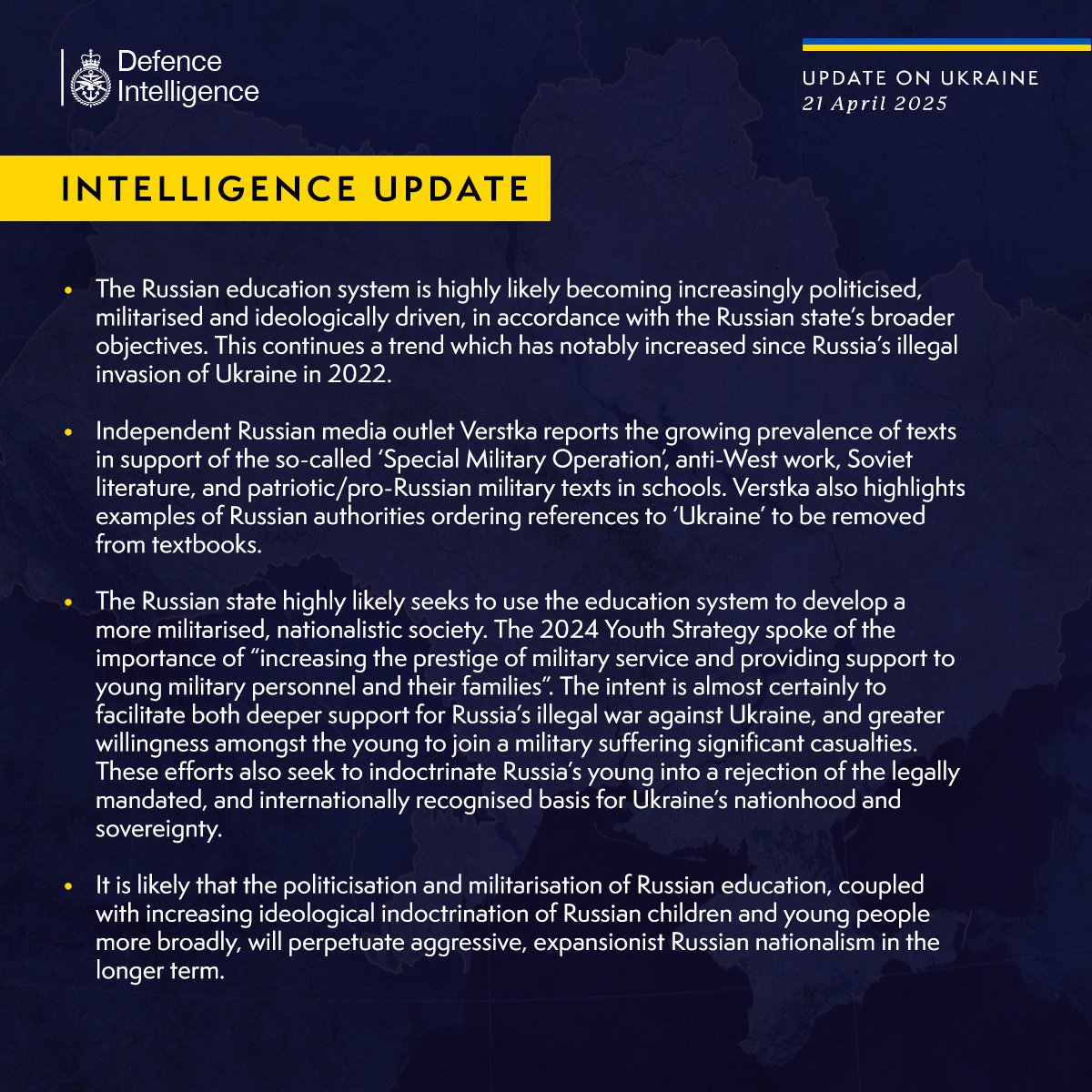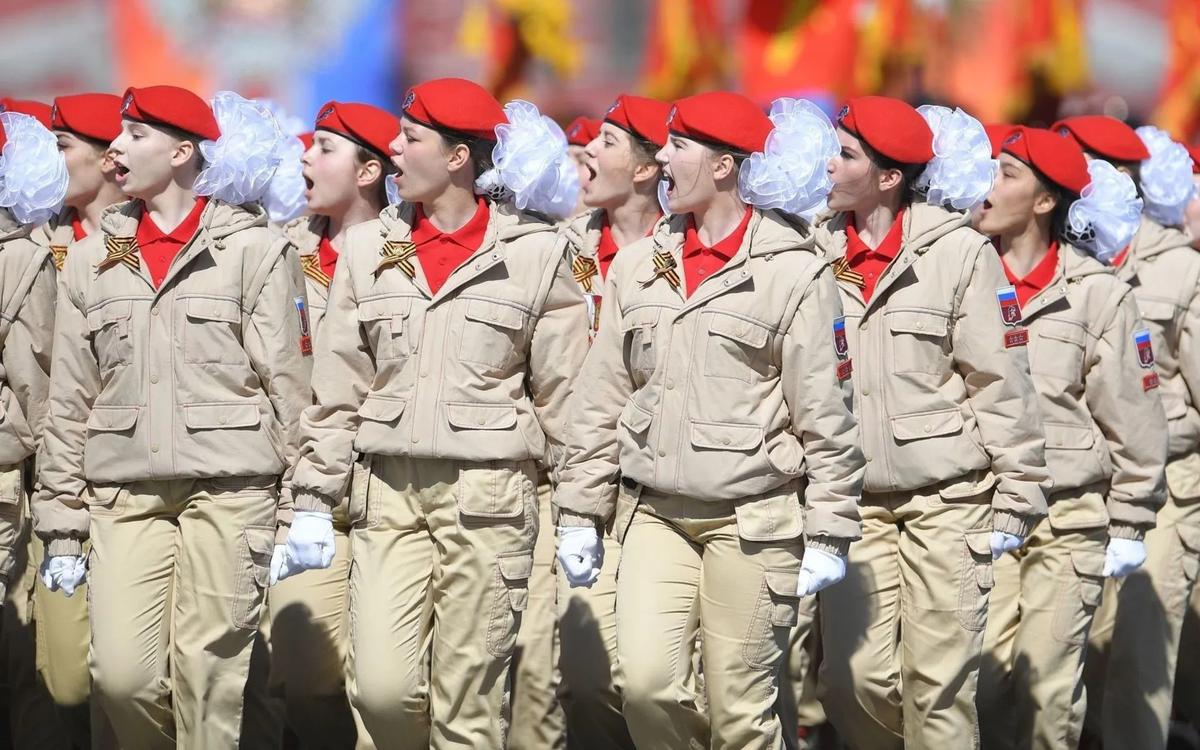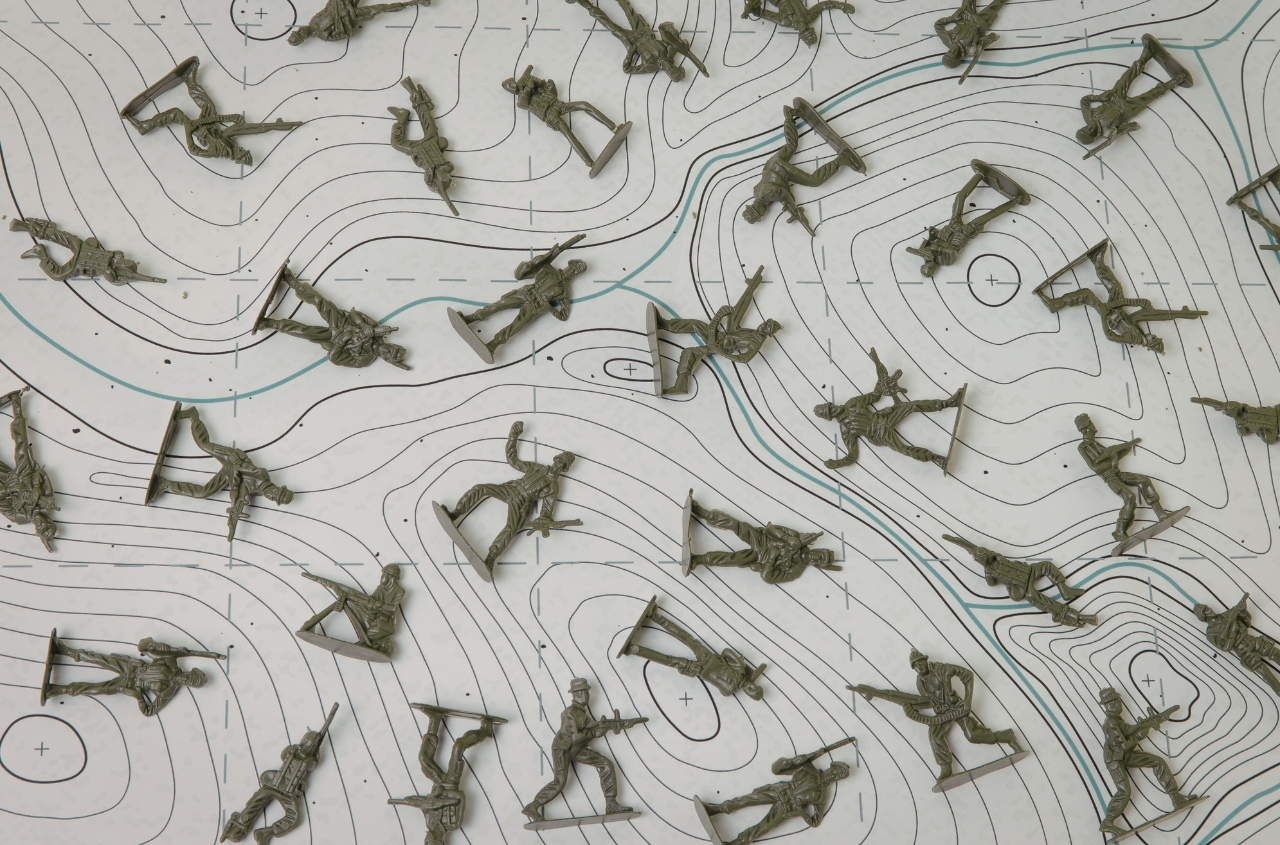Russia’s education system is becoming ever more politicized, militarized, and ideologically charged, aligning closely with the broader objectives of the Russian state — a trend that has significantly intensified since the country’s full-scale invasion of Ukraine in 2022.
This was reported by the UK Ministry of Defence on social media platform X.
According to the Russian independent outlet Verstka, there is a growing presence of texts in schools that support the so-called “special military operation” — the Kremlin’s term for its war against Ukraine — as well as anti-Western literature, Soviet-era writings, and overtly patriotic or pro-Russian military content.
Verstka also cites examples of Russian authorities ordering the removal of any references to Ukraine from school textbooks.
“The Russian state is likely attempting to use the education system to shape a more militarized and nationalist society,” the intelligence briefing notes. Russia’s Youth Strategy 2024 emphasizes the importance of “enhancing the prestige of military service and providing support for young servicemembers and their families.” British intelligence assesses that this is almost certainly intended to deepen domestic support for Russia’s illegal war in Ukraine and to encourage greater enlistment among youth, especially in the face of heavy battlefield losses.
According to UK intelligence, these efforts are also aimed at instilling among young Russians a rejection of Ukraine’s legitimate and internationally recognized sovereignty and statehood.
“It is likely that the politicisation and militarisation of Russian education, coupled with increasing ideological indoctrination of Russian children and young people more broadly, will perpetuate aggressive, expansionist Russian nationalism in the longer term,” the assessment concludes.




















